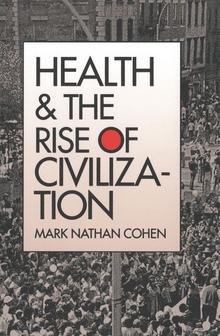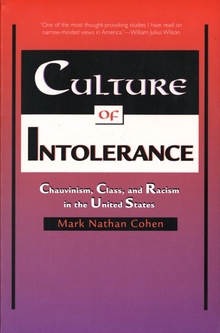Health and the Rise of Civilization
WARNING
You are viewing an older version of the Yalebooks website. Please visit out new website with more updated information and a better user experience: https://www.yalebooks.com
Mark Nathan Cohen
Civilized nations popularly assume that “primitive” societies are poor, ill, and malnourished and that progress through civilization automatically implies improved health. In this provocative book, Mark Nathan Cohen challenges this belief. Using findings from epidemiology, anthropology, and archaeology, Cohen provides fascinating evidence about the actual effects of civilization on health, suggesting that some aspects of “progress” create as many health problems as they prevent or cure.
“[This book] is certain to become a classic—a prominent and respected source on this subject for years into the future…. If you want to read something that will make you think, reflect, and reconsider, Cohen’s Health and the Rise of Civilization is for you.”—S. Boyd Eaton, Los Angeles Times Book Review
“A major accomplishment. Cohen is a broad and original thinker who states his views in direct and accessible prose…. This is a book that should be read by everyone interested in disease, civilization, and the human condition.”—David Courtwright, Journal of the History of Medicine
“Cohen has done his homework extraordinarily well, and the coverage of the biomedical, nutritional, demographic, and ethnographic literature about foragers and low energy agriculturalists is excellent…. The book deserves a wide readership and a central place in our professional libraries. As a scholarly summary it is without parallel.”—Henry Harpending, American Ethnologist
“Deserves to be read by anthropologists concerned with health, medical personnel responsible for communities, and any medical anthropologists…. Indeed, it could provide great profit and entertainment to the general reader.”—George T. Nurse, Current Anthropology
ISBN: 9780300050233
Publication Date: July 24, 1991
Publication Date: July 24, 1991
296 pages, 6 1/8 x 9 1/4



